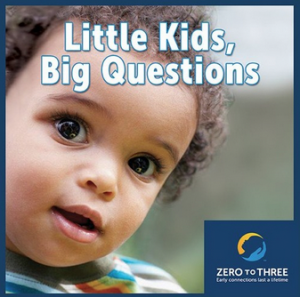 This week in the Neighborhood, we’re highlighting an informative podcast featuring Dr. Brenda Jones Harden, an associate professor at the University of Maryland College Park. In this episode of Zero to Three’s “Little Kids, Big Questions” series, Dr. Harden describes “how young children develop self-control, starting even in the first year of life, and how parents can set limits with love.” How Babies Begin to Develop Self-Control in the First Three Years of Life is only 25 minutes long, but full of useful information. There’s also a transcript of the episode that you can access here.
This week in the Neighborhood, we’re highlighting an informative podcast featuring Dr. Brenda Jones Harden, an associate professor at the University of Maryland College Park. In this episode of Zero to Three’s “Little Kids, Big Questions” series, Dr. Harden describes “how young children develop self-control, starting even in the first year of life, and how parents can set limits with love.” How Babies Begin to Develop Self-Control in the First Three Years of Life is only 25 minutes long, but full of useful information. There’s also a transcript of the episode that you can access here.
The ICC-Recommended Early Start Personnel Manual (ESPM) describes core knowledge and role-specific competencies needed for early intervention service provision, incorporating current research and evidence in the field of early intervention. To access the ESPM, click here.
This resource is related to the following ESPM knowledge-level competencies:
- Core Knowledge (CK):
- CK2: The role of primary social and emotional relationships as the foundation for early learning.
- CK6: The sequences of development and the interrelationships among developmental areas/factors, including emotional development and resiliency, including the development of attachment and trust and self-regulation
- Individualized Family Service Plan Development and Review (IFSP-DR):
- IFSP-DR5 (EIA): Has basic knowledge of intervention strategies used in everyday routines, relationships, activities, places and partnerships.
- Individualized Family Service Plan Development and Review (IFSP-i):
- IFSP-i2 (EIS): Understands the individual nature of child learning styles and the importance of adapting intervention strategies.
